Now that vaccinations are becoming more accessible around the world, industries are starting to re-open, and offices are starting to bring back their workers. Yet, it has not been as easy or smooth as expected.
Many workers are demanding a more flexible work schedule, or the option of working from home permanently. Many employees have been weighing whether to leave their current employer for another company that may offer flexible or work-from-home options. You’ve no doubt seen headlines about employee churn, worker shortages, workers leaving their in-person job for more flexible opportunities, and so on. We wanted to find out if our research would mirror what we’ve seen in the headlines. Are employees ready to jump ship to another opportunity?
There’s no doubt that there’s a real thirst for remote work. For a quick snapshot, we conducted a small exploratory study to get some answers — and found that 53% of our participants would ideally like to work remotely all the time.
Let’s go through some of the highlights in the results.
Setting the scene
Again, this was a small study, and as such should not be seen as a representation of the experience of all employees across the world. Our target audience was a broadly defined group — American adults — and we reached out to them through a Facebook campaign. From July 10, 2021, to July 12, 2021, 109 people chose to participate. Eighty-six percent identified themselves as being employed full-time, 6 percent said that they are employed part-time, and 8 percent said they were not currently employed. Those not currently employed skipped the majority of the questions, since the majority of our questions focus on the employment experience. Those who identified as full-time or part-time employees and indicated that remote work was not possible in their jobs were skipped past the questions about remote work.
Employment status and length
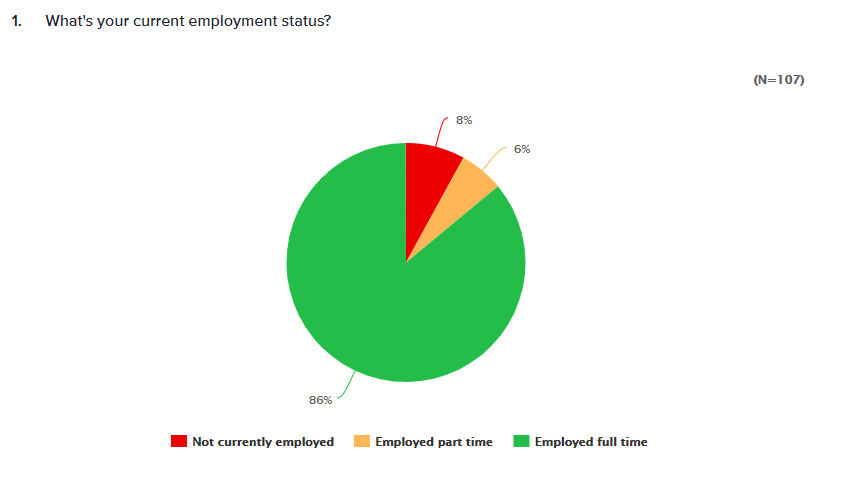
Most of our respondents (44 percent) had been at their organization for 10-plus years. On the surface this was a surprising insight considering the current impression among the workforce that employees will readily leave for a better opportunity or better pay. That number became much less surprising when we segmented that data by age group. When segmenting this data by age group, 54 percent of the participants who were ages 57-75 had been with their current organization for 10-plus years, while 38 percent of participants ages 41-56 had been with their current organization for that length of time. Some 21 percent of the participants had been working at their organization for 1-3 years, which would be in line for the expected employment length for Millennials, at least given their reputation for job hopping.
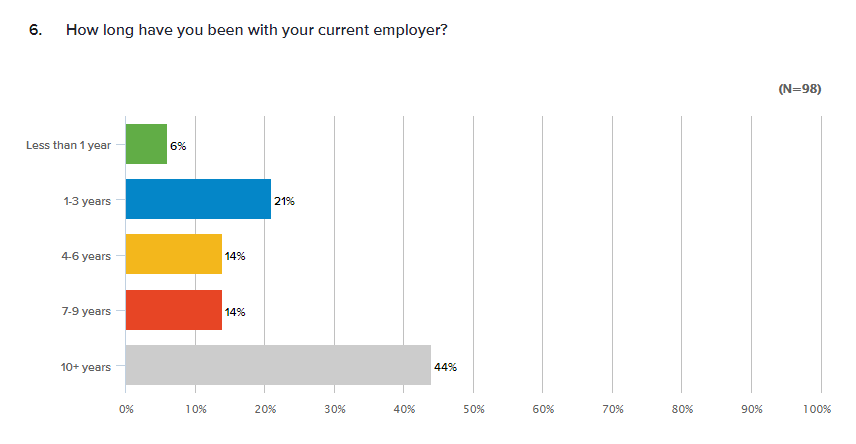
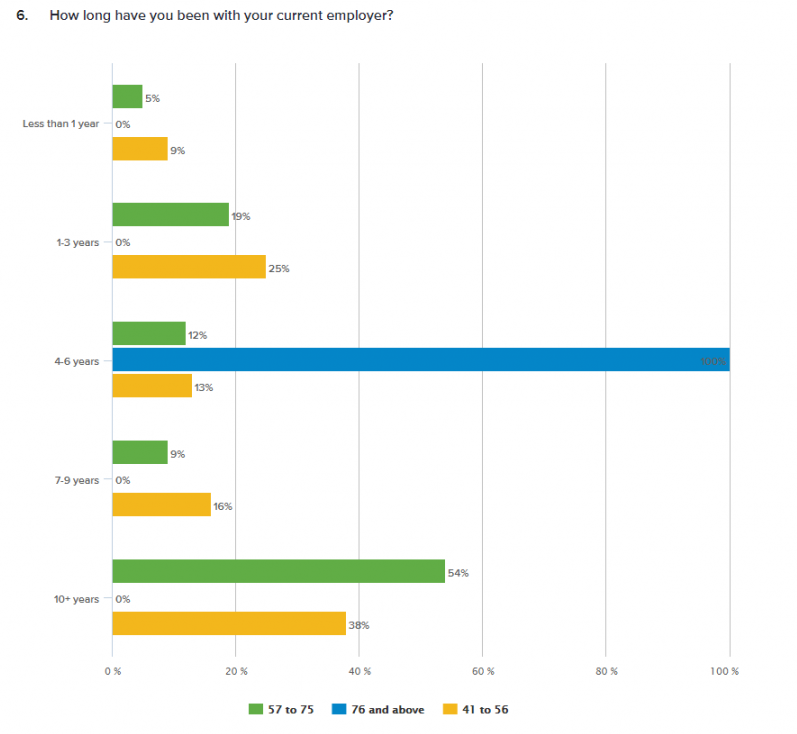
Remote work possibility
Out of 98 respondents, 65 percent said that remote work is possible for their role. On the other hand, 35 percent said that remote work was not possible for their role.
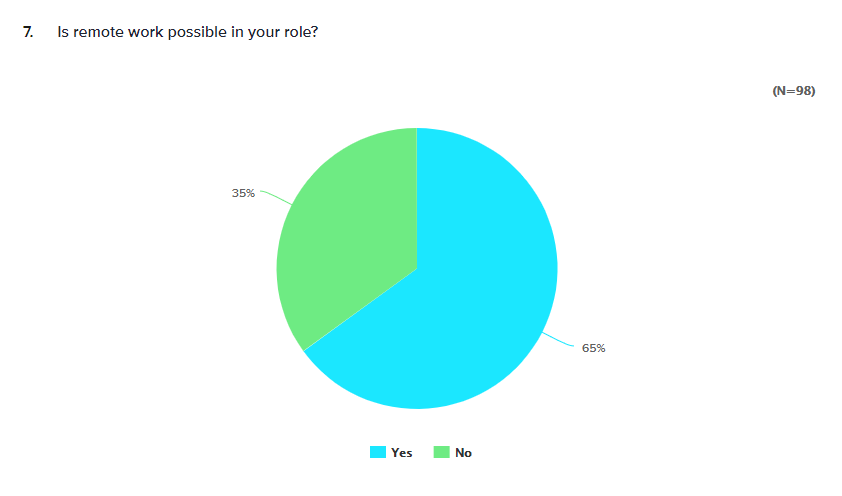
Out of 61 respondents, 54 percent said that over the past year, they have been working remotely “All the time”.
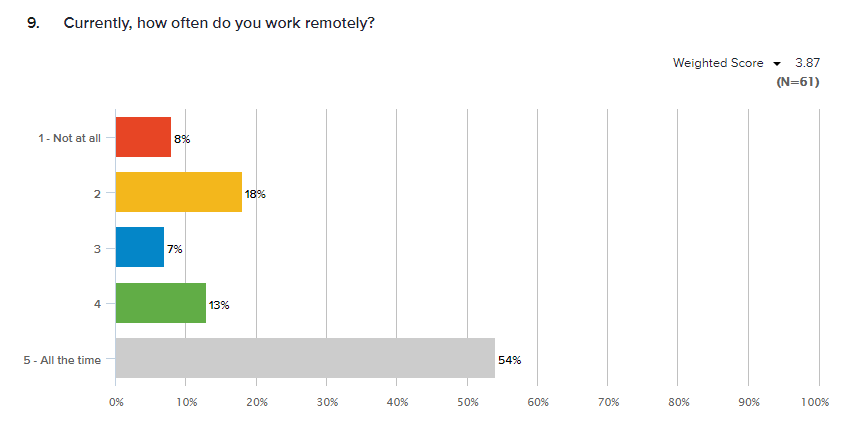
Right behind that, 53 percent of 64 respondents said that they ideally would like to work remotely all the time.
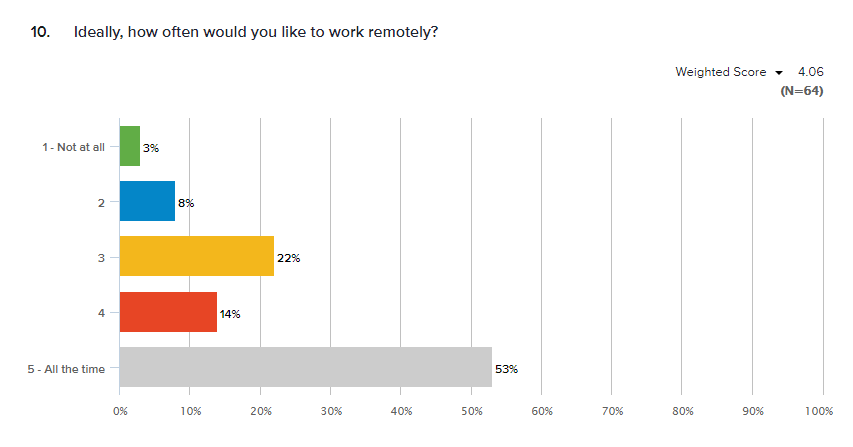
The results indicate that most employees want remote work to stay. But that’s only the first part we wanted to figure out.
In the next post on this study, we’ll examine what’s prompting employees to look elsewhere — the desire for remote work, the burnout from the pandemic, or something else entirely. Stay tuned!






